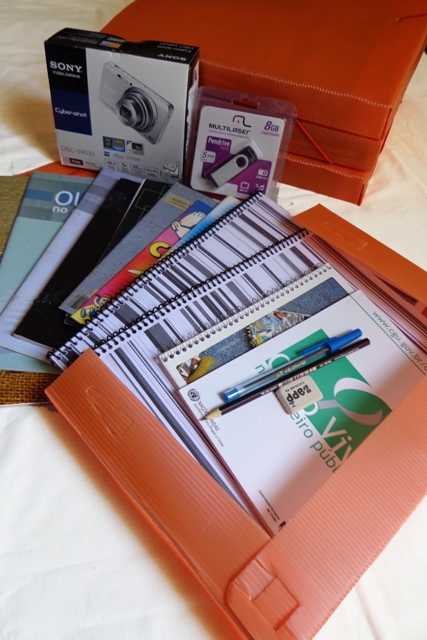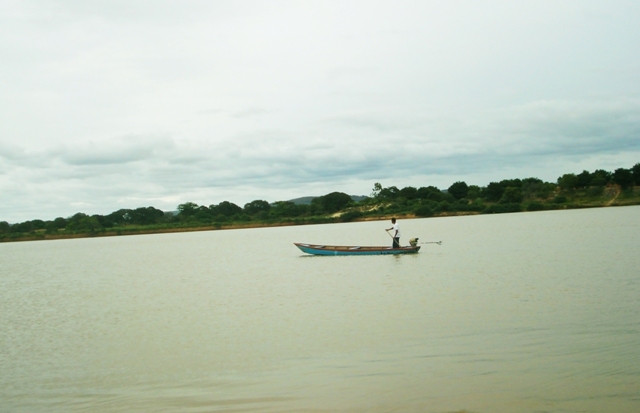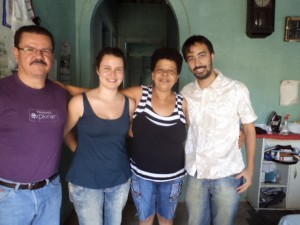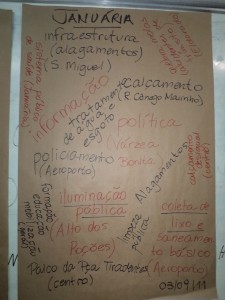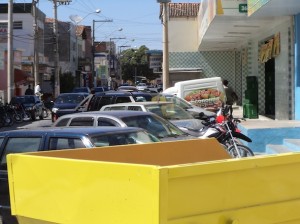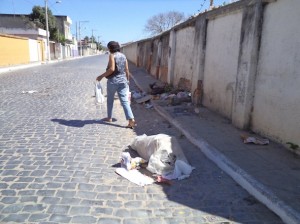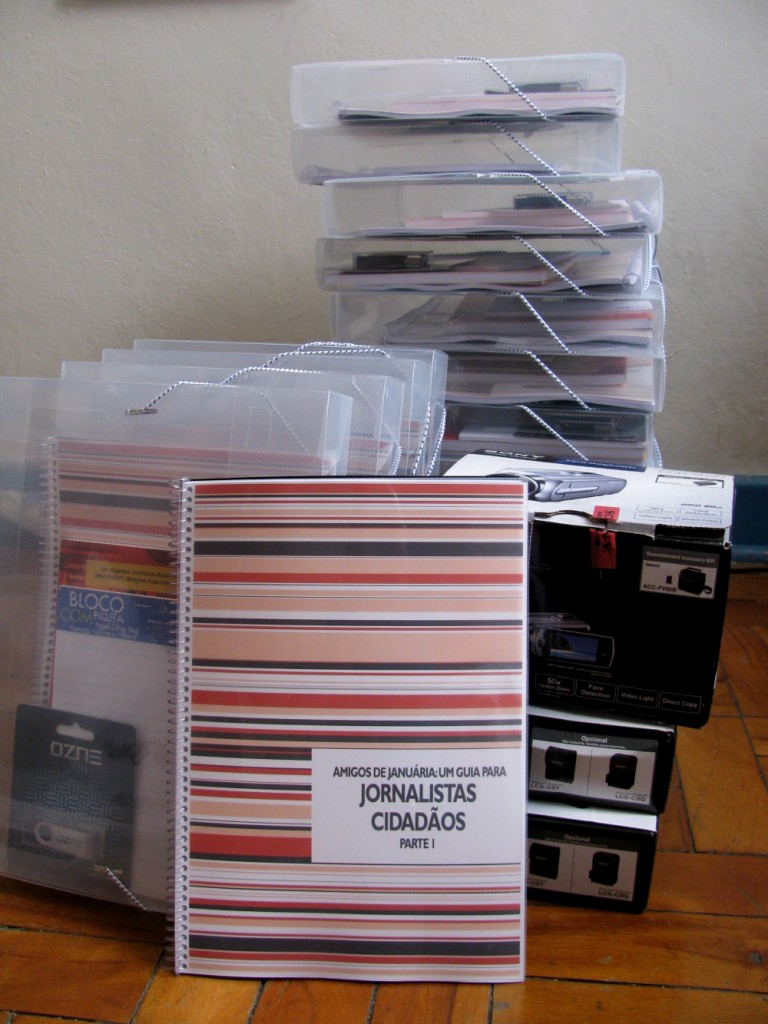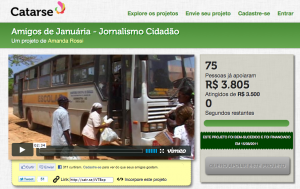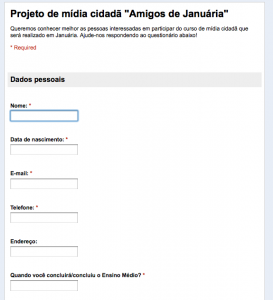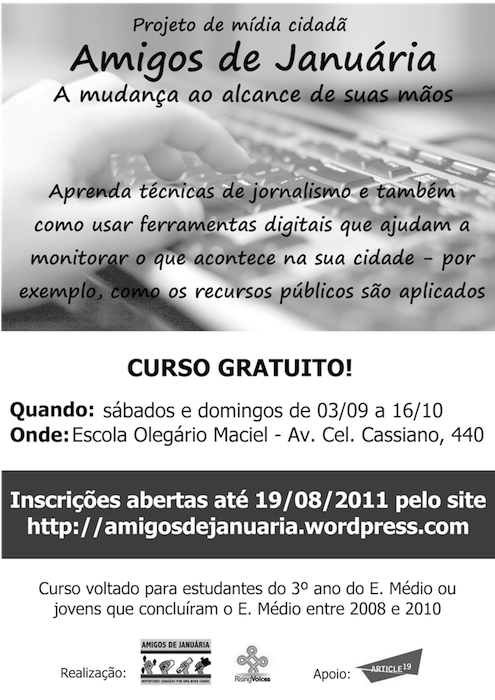This is the second part of the interview we did with Fábio Oliva, who is an investigative journalist, active blogger (http://blogdofabiooliva.blogspot.com/) and founder of the Friends of Januária Association (Asajan). Asajan has been fighting corruption and monitoring public expenditures in Januária for seven years. In this part, Fábio says “the same corruption that exists in Januária exists in every brazilian town”. What is different in Januária is that the town's citizens started to monitor the public administration and, as a consequence, begin to discover corruption cases. Click here to read the first part.
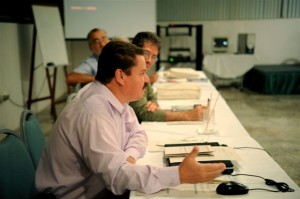
How was it, starting up Asajan?
It was easy when it came to finding evidence and difficult when it came to raising awareness among the population. In relation to evidence, there had been some people in Januária collecting documents for a long time by the time we started. They had also been making formal accusations at various federal offices in change of accountability and control. However, these people had not achieved any positive results. Sometimes, the reason for that was that they didn't know what were the right procedures to make formal accusations and they ended up sending the documents to the wrong offices. When Asajan started, we received three boxes full of documents, collected by Suely Pereira de Almeira, a former health councilor. Those documents gave us the ammunition for a series of formal accusations e lawsuits – actually, they were so well written that they are still yielding positive results.
What was the first reaction of people from Januária to Asajan's work?
Many people used to tell us that, even though the work we had been doing was very beautiful, we would not achieve any positive results. What they used to say was: the reality of the town had always been like that and will always be like that. “There is no chance”. They would not believe that things could really change! Anyway, we had to motivate ourselves to continue our work. However, at the end of the day, Januária people started to think differently. The change in thinking happened in 2006, two years after the foundation of Asajan. That year, the mayor of Januária was put in jail by the Federal Police – Asajan helped to investigate him. Besides the mayor, the authorities also put in jail a group of businessmen who were embezzling money from the education budget. It was not the first time Asajan helped to remove a corrupt politician from office. From 2004 to 2006, the Association was successful in the dismissal of other mayors. However, it was the first time that a mayor was put in jail – and people usually think that there is no punishment if there is no prison time.
What happened next?
After this detention, people from Januária started to protest. It was the first time in 145 years of the town's history that a mayor and a group of businesspeople were put in jail because of corruption. This fact gave people the courage they needed to act. We begin to hold public demonstrations with 700, 800 people on the streets, something that had never happened before in the town. Besides that, people started to go to the Public Prosecution Office on their own to make formal accusations. Before, only Asajan would make formal accusations – people would come to us first. This change happened because people started to believe in the fight against corruption and in Asajan's work. I think that the biggest legacy Asajan will leave to the people of Januária is that they started to believe that it is possible to change and to punish corruption. It it not important to “own” the idea, the important thing is that the work remains even if those that started it go away. What is important is that people continue to be mobilized and that they believe.
It is really remarkable that Januária had 7 different mayors in the last 8 years. Why did that happen in Januária?
Before, I used to think that Januária was the most corrupt town in Brazil. Then, I started to be invited to give lectures and to help create NGOs to fight corruption in other Brazilian towns (Asajan helped create other 6 “associations of friends” in the North of Minas Gerais, São Paulo and Ceará) and I changed my mind. I started to think that Januária is not the most corrupt town in Brazil. The same corruption that exists in Januária exists in every Brazilian town. The reason why many mayors were dismissed from office in Januária is that its citizens got excited about keeping track of the public administration. In any place where there is oversight, mayors will be dismissed. Besides, we developed an investigation technique that helped a lot. Until 2004, when Amarribo was created in Ribeirão Bonito, to dismiss corrupt politicians and put them in jail was not common at all in Brazil. Today, the situation is very different. If you watch and read the news, you will find everyday a report about a Brazilian mayor who got dismissed or a politician and a businessman that got arrested. Despite the high number of politicians who were dismissed from office in Januária, what we observe is that the corruption cases we find out about are those where corruption “went wrong”. There is also the corruption that was successful, that nobody discovered and never will.
How is this investigation technique?
We gather all the evidence about the case we are investigating. Then, we give them to the state attorneys. The only thing we cannot do is interview witnesses – this has to be done by the state attorneys. By giving them the evidence, we can speed up the process. Another important thing is that the network of “Associations of Friends” helps us investigate (read about the “Association of Friends” model and how it has spread to almost 180 towns in Brazil). For example, the state attorneys is suspicious about a company which has contracts with the town's administration. Its documents says it is located in another state. To check if the company is a” ghost” or not (legitimate ou not), it would be necessary to take a photo its [physical] address. However, the Public Prosecution Office does not have a big enough work force. On the other hand, the network of “Association of Friends” is spread across the country and can easily do it. Besides, it is easy to get access to information in some public institutions nowadays, which helps us investigate. For example, you can download on the internet data about any Brazilian company. You can see who the partners are, if they are family relatives of any politician, if they had already been involved in any corruption case in other towns…
(to be continued…)


